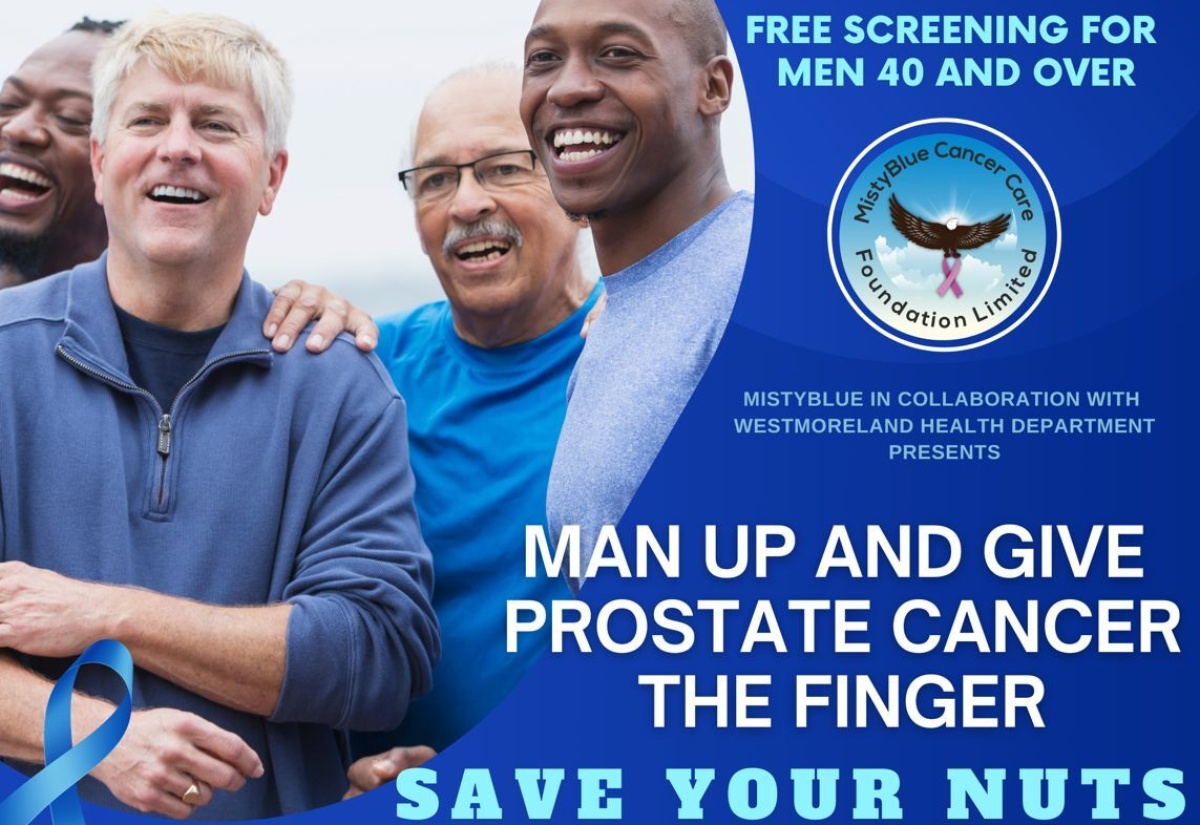Men in the West Encouraged to Get Screened for Prostate Cancer on September 25
By: , September 16, 2025The Full Story
Men 40 years and older in Westmoreland and surrounding parishes are being encouraged to take advantage of free prostate cancer screening to be offered by the Westmoreland Health Department, in partnership with the Misty Blue Cancer Foundation, on Thursday, September 25.
The screening exercise will take place at Independence Park in Savanna-la-Mar from 8:00 a.m. to 5:00 p.m.
Health Promotion and Education Officer for Westmoreland, Gerald Miller, said the initiative forms part of activities to mark Prostate Cancer Awareness Month.
“Since prostate cancer is the most common cancer in Jamaica, affecting men as they age, the Westmoreland Health Department, over the years, has been partnering with the Misty Blue Cancer Foundation in providing free screening for men 40 and over,” he outlined in an interview with JIS News.
Mr. Miller noted that screening will include the digital rectal examination and the prostate-specific antigen (PSA) test, which measures the level of prostate-specific antigen in the blood.
“Men who are 40 years old and above should start to screen via digital rectal examination and the prostate-specific antigen test, which is a blood test. A raised PSA level may suggest you have a problem with your prostate, but not necessarily cancer,” he informed.
In addition to prostate screening, the Health Department will also offer blood pressure checks, body mass index (BMI), blood glucose, ECG, as well as HIV and syphilis tests.
“We are providing a raft of services here for our men. So, ladies, we are encouraging you to get the men out, remind them about the event, and if need be, escort them,” Mr. Miller urged.
Highlighting the importance of early detection, he outlined possible warning signs of the illness, including frequent or painful urination, weak urine stream, stoppage of urine flow, blood in the urine or semen, and painful ejaculation.
He pointed out that the risk factors for prostate cancer include age, family history, race, and diet.
“Our race also puts us at risk for this particular cancer. Diet rich in fat may increase your risk. So, how we eat and increasing our physical activity is important. If we are smoking, then we need to get rid of smoking, and alcohol consumption in excess amounts should also be avoided,” he said.
Mr. Miller pointed out that cultural norms surrounding masculinity often prevent men from seeking care.
“We know the strong presence of the traditional masculine norms where we believe we are strong and stoic, nothing will happen. However, that whole concept of masculinity, how we perceive ourselves as males, is also going against us in terms of our health and our longevity,” he emphasised.
“Prevention as we often say is better than cure. We are recommending that you trust the signs and go out and have your screening done on the 25th of September at the Independence Park. Everything is free of cost,” Mr. Miller stated.

